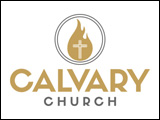When it comes to charitable giving, Canadians are among the best in the world. According to Statistics Canada, 5.7 million Canadians reported making a charitable donation in 2010 for a total of just under $8.3 billion.
The simplest giving strategy is a cash donation but that may not be the best strategy for you. One that can not only help the charitable organization, but also help the donor to save on taxes, is the gifting strategy of donating publicly-traded securities.
Donating publicly-traded securities (such as shares or mutual fund units) directly to a charity is more tax-efficient than selling the securities and donating the cash proceeds. If you sell shares or mutual fund units to make a cash donation you’ll have to include 50% of the realized capital gains as taxable income when you dispose of the shares or units. However, if you donate the shares or units directly to the charity there is no capital gains and accordingly no income tax payable.
Here’s an example: You have $100,000 of securities that originally cost you $30,000 (the “cost base” of that asset). You sell the securities and donate the $100,000 to your charity. If your marginal tax rate is 46%, the sale of securities will create a tax liability of $16,100 (based on the $70,000 increase in the securities’ value times the 50% capital gains inclusion rate times your 46% marginal tax rate). However, if you make what is known as an ‘in-kind’ gift by donating the securities directly to the charity, your tax liability for the capital gain would be zero. Your charitable donation receipt would be for the fair market value of the securities on the date that the ownership of the securities was transferred to the charity. The special capital gains inclusion rate applies to ‘in -kind’ gifts to registered charitable organizations as well as public and private foundations. The charity/foundation must have a broker account into which the shares or units can be transferred. Charities typically have special forms to smooth the transfer process or your advisor may be able to provide the required form. Check out your charity’s website for information about ‘in-kind’ transfers, or call them directly.
You are required to report all gifts of publicly-traded securities by including CRA form T1170, Capital Gains and Gifts of Certain Property with your tax return.
Your best approach to increasing your lifetime donations and potential tax benefits begins with talking to your professional advisor and developing a plan the fits your overall financial strategy.
This column, written and published by Investors Group Financial Services Inc.(in Québec - a Financial Services Firm), presents general information only and is not a solicitation to buy or sell any investments. Contact your own advisor for specific advice about your circumstances. For more information on this topic please contact your Investors Group Consultant. Insurance products and services are distributed by I.G. Insurance Services Inc. (in Québec - a Financial Services Firm). Insurance licence sponsored by The Great-West Life Assurance Company outside of Québec.



